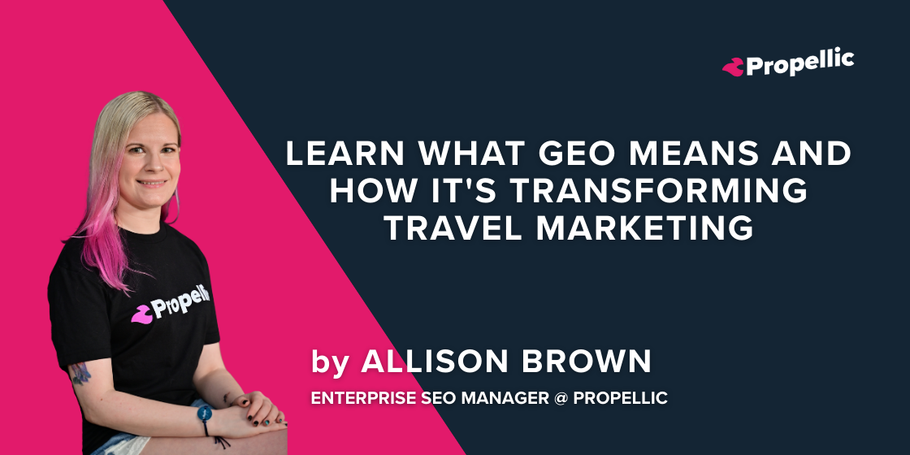With an eCommerce store, you don’t have the overhead expenses of a brick and mortar store. No leasing of space, no merchandise fixture installations, and no shoplifting (thank goodness). But like the traditional retail store, you still have a decision of where to set up shop.
Anyone can set up an eCommerce website and start selling immediately, but going it alone may mean more work for yourself. eCommerce hubs like Amazon and Shopify provide tools and resources for online merchants to sell products, all in one place.
1 million merchants flocked to Shopify and sold to 218 million customers (in 2019). Amazon boasts a seller community of 8.6 million (593,000 added in 2020) who collectively racked up $53.76 billion in sales last year. (Third-party sellers account for around half of Amazon’s total transactions.)
With more people staying at home because of Coronavirus, we depend on online shopping more than ever. As eCommerce storefronts work to manage this increased demand (even Amazon itself), having access to the right tools helps with efficiency.
Two wildly profitable platforms are set up to make it easier for online merchants to sell, and it can be difficult to choose between them. Amazon vs Shopify is in a hefty rivalry for eCommerce seller market share. For them, onboarding more motivated sellers is how they grow - the more, the merrier.
At Propellic, we’re also eager to support eCommerce sellers. With this guide, we prepare you to make an informed decision about which shopping platform is best for your store. Together we’ll consider ease of use, costs, features, customer support, store size, marketing budgets, etc.
So, is it better to sell on Amazon or Shopify? This depends on your situation and preferences. Amazon and Shopify each offer a way for eCommerce stores to sell products but in very different ways.
What is Shopify?
Shopify is a Canadian-based eCommerce platform company headquartered in Ottawa, Ontario. Its enduring mission is to make it much easier and simpler for stores to sell online.
With Shopify, each online seller creates their own virtual shop on a powerful cloud-based system. Because it's scalable, both large and small businesses can use the platform.
What’s more, its application is not restricted to online sales. A mobile POS system allows merchants to do in-person commerce as well. This allows you to have it both ways - online and in person.
Benefits of Shopify
With Shopify, sellers have just about everything they need to start and maintain an online retail business in one place.
It was created to address the founder’s own pain points as he faced many challenges in trying to sell snowboards online. So just like Amazon’s third-party seller platform, it’s a machine built for sellers by sellers.
- eCommerce University: Starting your own business is a learning journey. For newbies, this feature offers guidance for various aspects of an online business. More experienced sellers might also use this as a problem-solving resource.
- One-stop-shop: Build a store from scratch complete with a built-in POS/checkout system, sales tracking, etc., equipped to manage everything in one place. It works with Oberlo to find products for you to sell (ideal for drop shippers to add on more products without keeping the inventory).
- 24/7 Customer Support: Compared to Amazon, Shopify offers superior support services. This includes a help center along with around-the-clock phone and live chat support.
- Simplified pricing: With Shopify, businesses pay a monthly membership without the additional fee per sale. (In contrast, Amazon gets a cut of each sale in addition to recurring monthly charges.)
- Customization and brand development: Shopify has professional customizable themes and templates that are easy to use to build your brand and website. It provides everything you need to get started: business name generator, logo creator, stock images, custom URL setup, etc.
- Extra help: Need assistance with building your store? ‘Shopify Experts’ is a network of specialists ready to help you with a variety of tasks. This resource frees up your time by delegating the workload.
- Expanded reach: Maximize your selling opportunities with apps that pave the way for exposure on Google, Instagram, Facebook, Walmart, eBay, and (oddly enough) Amazon.
- Customer engagement: Store managers can leverage email marketing campaigns and Shopify Ping’s chat app to build relationships with customers.
With such a robust catalog of features, it seems Shopify thought of everything for launching and maintaining an online store.
Shopify Pricing
Shopify has a tiered pricing structure. The higher the level, the more generous the plan is with features. The level appropriate for your store is determined by the size of your business.
Shopify Lite: $9 per month -
- Sell on social media
- Point of sale app on your mobile device for in-person sales
- Shopify Buy Button adds the cart experience to an existing website
- Create invoices
Basic Shopify: $29 per month -
- Two managing user accounts
- Shopify POS App
- Standard credit card rates (1% fee for non-Shopify payments)
- Unlimited product listings
- Recovery for abandoned carts
- Discount codes
- Create orders manually
- Multichannel selling
- Custom eCommerce website & blog
- Free SSL certificate
- Fraud analysis
- Up to 64% discount on shipping
Shopify: $79 per month -
- All the features from the Basic Shopify level
- Five managing user accounts
- Gift cards
- Reports
- Reduced credit card rates
- Up to 72% discount on shipping
Advanced Shopify: $299 per month -
- All the features listed above for the standard Shopify level
- 15 managing user accounts
- Advanced report creation
- Allows third-party carrier shipping rates
- Further reduced credit card rates
- Up to 74% discount on shipping
For much larger online businesses, these plans won’t fit. In this case, Shopify Plus is offered at the enterprise-level tier and offers customized pricing for high volume eCommerce selling.
Shopify SEO
As an agency centered around eCommerce SEO Services, we wouldn’t dare leave out how to leverage Shopify for Search Engine Optimization.
The blog feature included with the store website is your Shopify SEO tool. Blog content helps your store be found in search results by way of keyword strategy. We highly recommend routinely adding keyword strategy-based content with this feature.
What is Amazon?
Who doesn’t know what Amazon is? It’s only the biggest retailer on the planet! What we’re really asking here is: what does the third-party Amazon eCommerce platform have to offer sellers?
As mentioned earlier, Amazon sellers make up about half of the sales for this reigning king of eCommerce. Likely the biggest draw to Amazon is the sizable page visitor volume and a strong loyal customer base (Amazon Prime members, especially).
For millions of online shoppers, Amazon is their go-to and they are willing to share this massive following with those sellers who have a quality product to sell.
Benefits of Amazon
The differing purposes of Shopify Vs Amazon are reflected in the contrasting benefits. Amazon is mainly interested in maintaining dominance (and these smaller sellers help make them even bigger).
Amazon just so happens to be a platform for independent sellers, yet Shopify is centered around the success of eCommerce stores. Because of this, Amazon offers fewer setup and support features. If you want to start a business on Amazon, then you can read the detailed article here.
Here are a few things Amazon has to offer.
- Pre-established customer base: Starting a new store means beginning the marketing funnel process from scratch. With Amazon, the customers are already there for you to reel in with a rigorous Amazon SEO strategy.
- Simple setup: Get a shop operation started with fewer steps than Shopify.
- Consumer confidence: Online shoppers tend to be reluctant to purchase from an unknown retailer. Sellers benefit from Amazon’s heavy brand authority.
- Fulfillment by Amazon (FBA): Some consumers are more inclined to purchase from a listing that is labeled with “Fulfilled by Amazon.” With this program, your products are stored in an Amazon warehouse so they ship it to the customer for you.
- Shipping discounts: Like Shopify, Amazon offers optimal shipping rates that you probably wouldn’t get by going it alone.
- Seller community: While Amazon doesn’t have an eCommerce University like Shopify does, it does provide a forum where sellers can communicate and learn from one another.
- Customer service: Would you rather not spend time with customer service issues?. Amazon’s customer service team is there to handle those.
Now that benefits on both sides have been shared, which way is the Shopify Vs Amazon scale tipping? Knowing about Amazon fees could be the tiebreaker.
Amazon Pricing
There are two options in setting up shop with Amazon: Individual or Professional level. The one you choose depends on how much you plan to sell. The base-level plan is intended for a sales volume of under 40 units.
Individual Seller plan:
- No monthly fee.
- 99 cents per sale plus referral percentages go into Amazon’s pocket.
(Note: Features that help an Amazon seller be competitive are withheld at this level such as custom shipping rates, reporting tools, favorable placements, etc.)
Professional Seller plan:
- $39.99 per month
- Referral percentages are routed toward Amazon’s revenue.
About those referral fees, Amazon’s cut of the transaction depends on what kind of product is sold. For example, Amazon gets 15% of book sales and 8% for electronics.
If you participate in FBA, expect even more fees. These include a per-unit shipping fee and warehouse storage fees charged by the cubic foot.
The important question is how much will the fees eat into your profits? Find out how much sales revenue you expect to make on the products you plan to sell, and then estimate the fees you’d pay. Know what you’re getting into so you don’t end up in the negative for profits.
Amazon SEO
Again, we just can’t resist an opportunity to talk about SEO. Yes, SEO is typically associated with Google, but there’s also such a thing as Amazon SEO.
Yes, Amazon is a high-traffic site, but that doesn’t mean your listings will be visible. Amazon sellers have to put the work in to make sure product listings are found by shoppers. Like Google, Amazon has its own algorithm to determine what belongs on the first page of search results.
Amazon SEO strategy includes such action items as product listing optimization (filled out properly with the best keywords), optimized images (high-quality and the right size), or sponsored listing (yet again, more money goes to Amazon).
The Biggest Difference Between Shopify and Amazon?
The biggest contrast between Shopify and Amazon is the backdrop of each. As mentioned before, Shopify is an eCommerce platform devoted to the development of online stores. On the other hand, Amazon is an eCommerce marketplace that just so happens to offer a platform for sellers.
Selling with Amazon is like being in a gigantic mall. Those who pay more in rent get the better foot traffic areas and in its lease are additional user fees and rules. Sure, there’s plenty of traffic, but the effort it takes to get people into your store leaves you wondering if it’s worth the expense.
Shopify is like setting up a franchise with a brand that has an ultra-relaxed attitude. Everything you need to have a successful store is in a kit, but you can opt for extra add-ons. You’re given the freedom to set up the store any way you’d like.
Amazon offers a convenient way to unload products, but Shopify is geared toward long-term eCommerce business growth.
Questions You Should Ask When Choosing Between Shopify and Amazon
But we’re not done yet. When evaluating Shopify Vs Amazon, your eCommerce needs and goals are what matter most.
Ask yourself in which environment your business is more likely to succeed. Below are examples of other things to consider.
Are You a Small or Large Business?
Business size and type is the main deciding factor between Shopify or Amazon.
Both hubs are ideal for ambitious small businesses. Those who show up ready to learn the ropes and put in the work have a decent shot at being successful.
Amazon is suited for sellers looking to skip some of the hassles of an online store (starting from scratch, storing inventory, resolving customer service issues, etc.). Being in the know about what high-demand products are sure to sell on Amazon is another reason a seller might list there.
Amazon limits how many items you can sell. If now or in the future, you’d like to sell a broad catalog of products, you won’t be able to on Amazon.
Shopify is for those who don’t mind taking the time to build a store from scratch because it gives them more control over the direction of the business. With Shopify, hobbyists and creative types (think Etsy) present their products in a more personal way.
Are You Planning to Invest in Creative Marketing Ideas?
How far do you want to go on this eCommerce journey and do you have a business vision? If yes, Amazon stunts this growth.
With most Amazon product listings being uniform in appearance, your branding is invisible. For businesses that aim to build an online presence and earn their own loyal customers, this scenario is unlikely with Amazon.
With Amazon, you’re at the mercy of a highly challenging algorithm. To rank, you need sales and a decent CTR. To make this happen, sellers may wind up in a paid ads hamster wheel (on top of all the other fees).
Not only does Shopify give you the freedom to market and brand your store, but they also give you plenty of tools to help you implement your marketing strategy (custom landing pages, blog content, email marketing, apps that help you market to several channels, etc.)
If you’re thinking big with your business, Shopify won’t hold you back.
Are You Planning to Invest in Search Engine Optimization?
As an agency that continues to witnesses eCommerce clients thrive with SEO, we hope you do invest in it. SEO gains are attached to the website you own and a business asset you build over time. With the help of SEO experts (like us), there are several variables within your control.
The reality of Amazon is that they can yank your listings for whatever reason. Also, an algorithm change could cause you to lose your Amazon SEO gains and through no fault of your own. It might not be wise to put all your eggs in one Amazon basket.
Shopify has you create a website property that is unlikely to be suddenly snatched from you with little to no chance of recovery. Shopify is a safer investment for those who seek to build long-term growth through SEO.
Shopify Vs Amazon: What’s the Verdict?
So which one would sync better with your online selling business plan? From where you stand, is Shopify better than Amazon? Well, both offer a low-risk way to give it a try. Amazon has no monthly fee at the starting level and Shopify offers a 14-day free trial.
Our team is all too familiar with weighing the options between tools and platforms. There is no rule saying you must use either nor that you can’t use both.
Indeed you have the option to make an Amazon-Shopify integration part of your eCommerce strategy (Shopify as the “home base” and Amazon as one of your sales channels.)
At Propellic, small business eCommerce SEO strategy is our passion. We’re obsessed with each of our client’s business growth goals.
We welcome you to subscribe to our blog for our latest guides on eCommerce strategy. We also invite you to schedule a free SEO Strategy consultation with our CEO Brennen.
Want To Level Up Your Travel Marketing?
Subscribe to the NavLog, our bi-weekly travel marketing roundup, where you’ll be the first to know about breaking news that impacts travel marketers and access exclusive performance marketing strategies and practical tips you can implement from the marketers at the leading edge of the travel industry.




.png)

.png)

